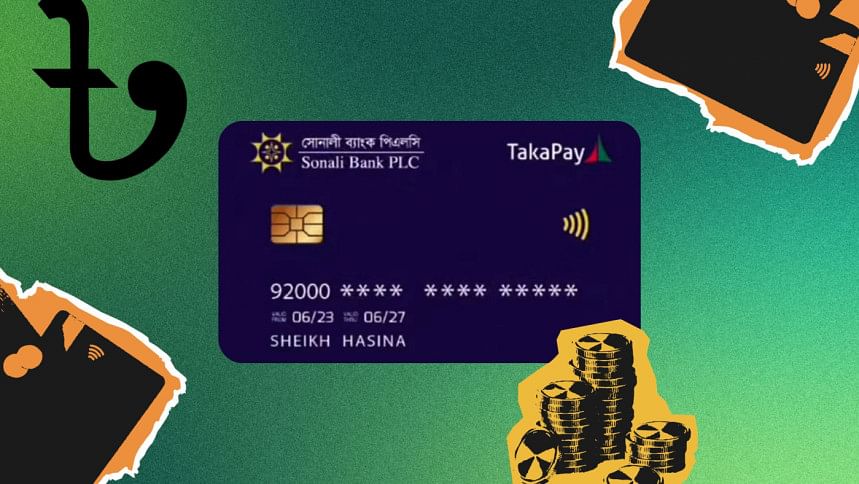What is TakaPay card and how does it work?

TakaPay is Bangladesh's inaugural local currency card, recently unveiled by Prime Minister Sheikh Hasina. But what exactly is TakaPay? Let's explore this payment system and its potential benefits, including the card's practical aspects and an overview of what it is and how it works.
Why was Takapay launched?
TakaPay was launched to reduce reliance on international card networks such as Visa and Mastercard. This initiative serves to conserve foreign exchange reserves. TakaPay aims to offer a secure local payment method and has plans to introduce the Taka-Rupee card in the future, which will facilitate cross-border transactions, especially with India, to enhance economic cooperation between the two countries.
What are its benefits?
The TakaPay card aims to serve as a convenient means for electronic transactions between banks, financial institutions, and companies. The government's goal is to reduce reliance on international card networks like Visa and Mastercard, resulting in lower foreign exchange expenses. Additionally, it aims to provide a secure method for handling local payments through the 'National Payment Switch of Bangladesh', streamlining domestic financial transactions.
Obtaining TakaPay
For now, the card is issued by Sonali Bank, BRAC Bank, and City Bank. Also, the three banks have been given the responsibility of issuing the TakaPay card in collaboration with the Central Bank of Bangladesh. In the future, five other banks — United Commercial Bank, Eastern Bank, Islamic Bank, Dutch-Bangla Bank, and Mutual Trust Bank —will also issue the card.
To use TakaPay, you need a bank account. As of now, this service prevails with debit card users. Existing account holders can switch to TakaPay by suspending their linked debit cards. According to the government, the TakaPay will be widely accepted at ATMs, points of sale (PoS), and online platforms nationwide. In the future, a credit card option may be introduced with strong security measures.
Alternatives in other countries
Many other countries also have their own currency cards. Sri Lanka uses 'Lankapay', Pakistan has 'Pakpay', India employs 'RuPay' cards, and Saudi Arabia has 'Mada'.
When asked about the potential impact of TakaPay in Bangladesh, Professor Raad Mozib Lalon, Associate Professor, Department of Banking and Insurance, University of Dhaka, said, "TakaPay marks a groundbreaking beginning for our online payment system and electronic transactions. With our debit and credit cards now operating locally for financial transactions, it will ease the burden on our foreign currency reserves." According to Professor Lalon, TakaPay will also have a positive impact on Bangladesh's GDP (Gross Domestic Product) growth.
"Since the local currency card is overseen by the Bangladesh Bank, ensuring its security is a significant challenge due to its recent launch," Professor Lalon added when talking about the cost-effectiveness and security of the new payment system. "Security measures in Bangladesh need to be robust to prevent any breaches. Internationally, electronic payment systems of this kind have highly advanced security protocols, and Bangladesh should not compromise on this aspect. To maintain security, it's essential to regularly update the security system."

 For all latest news, follow The Daily Star's Google News channel.
For all latest news, follow The Daily Star's Google News channel. 







Comments